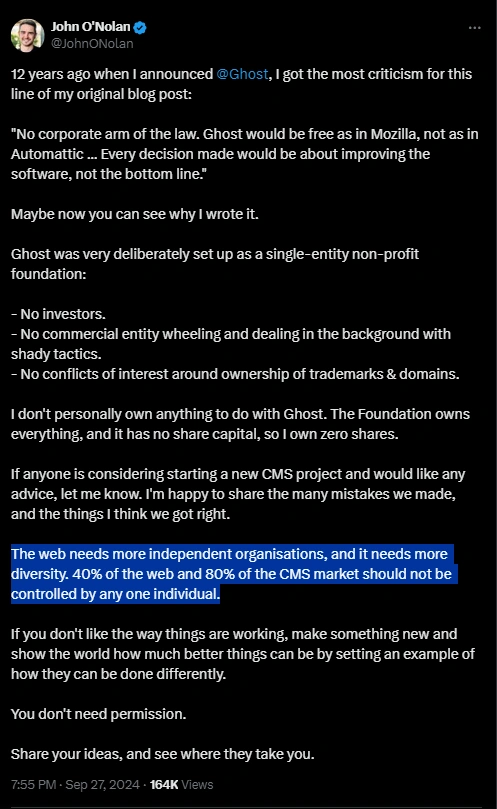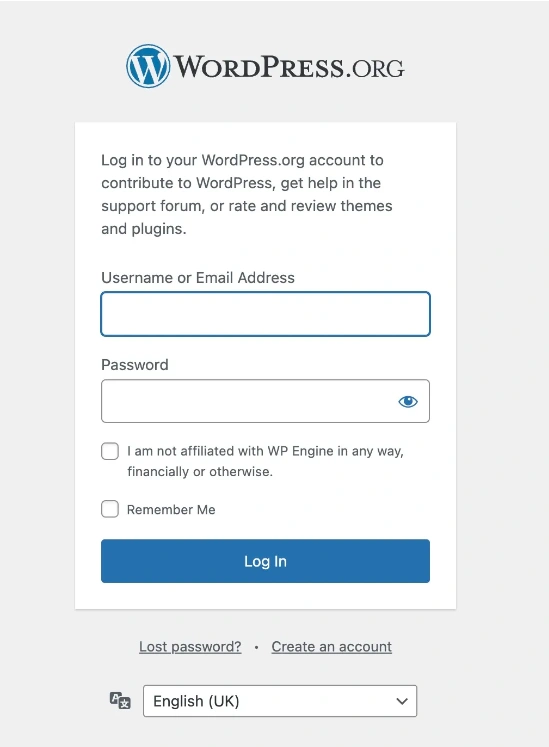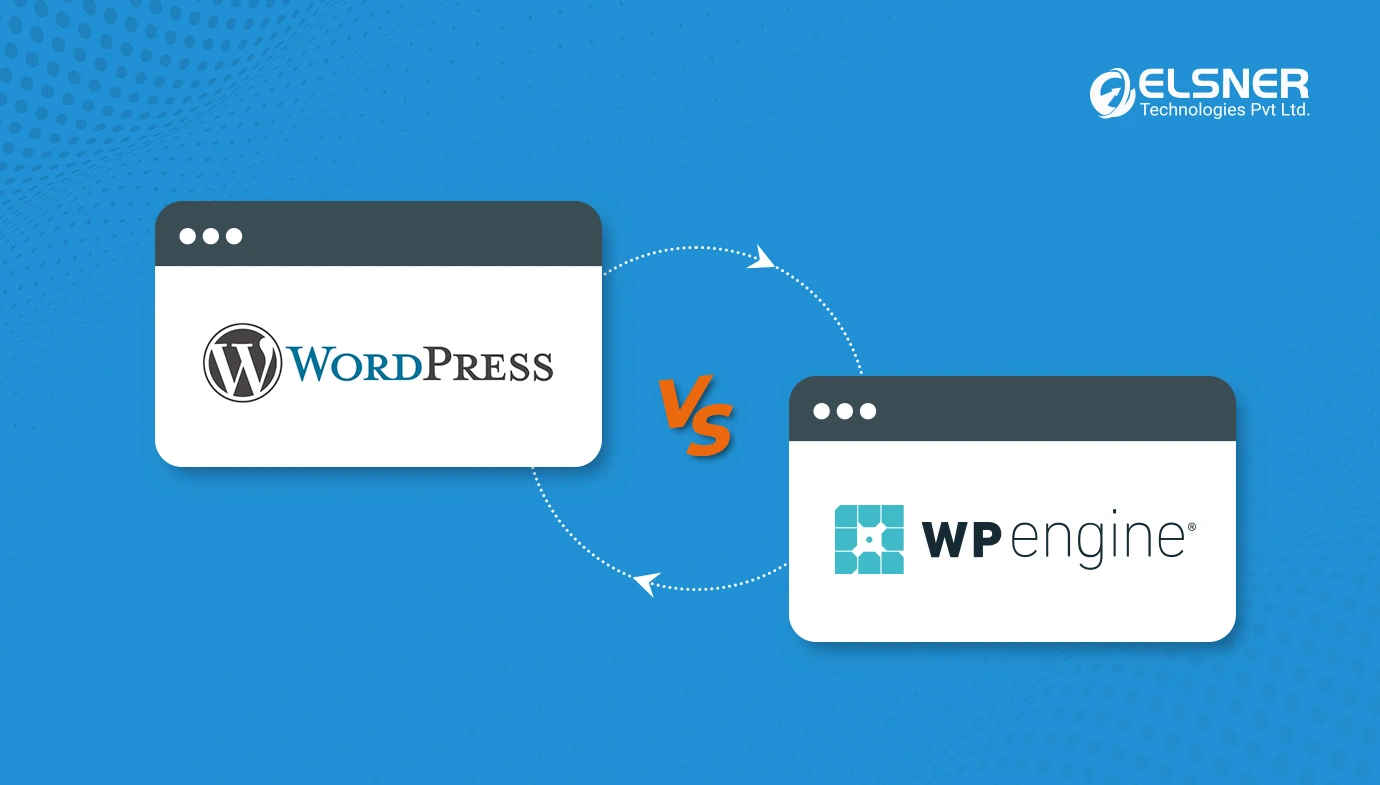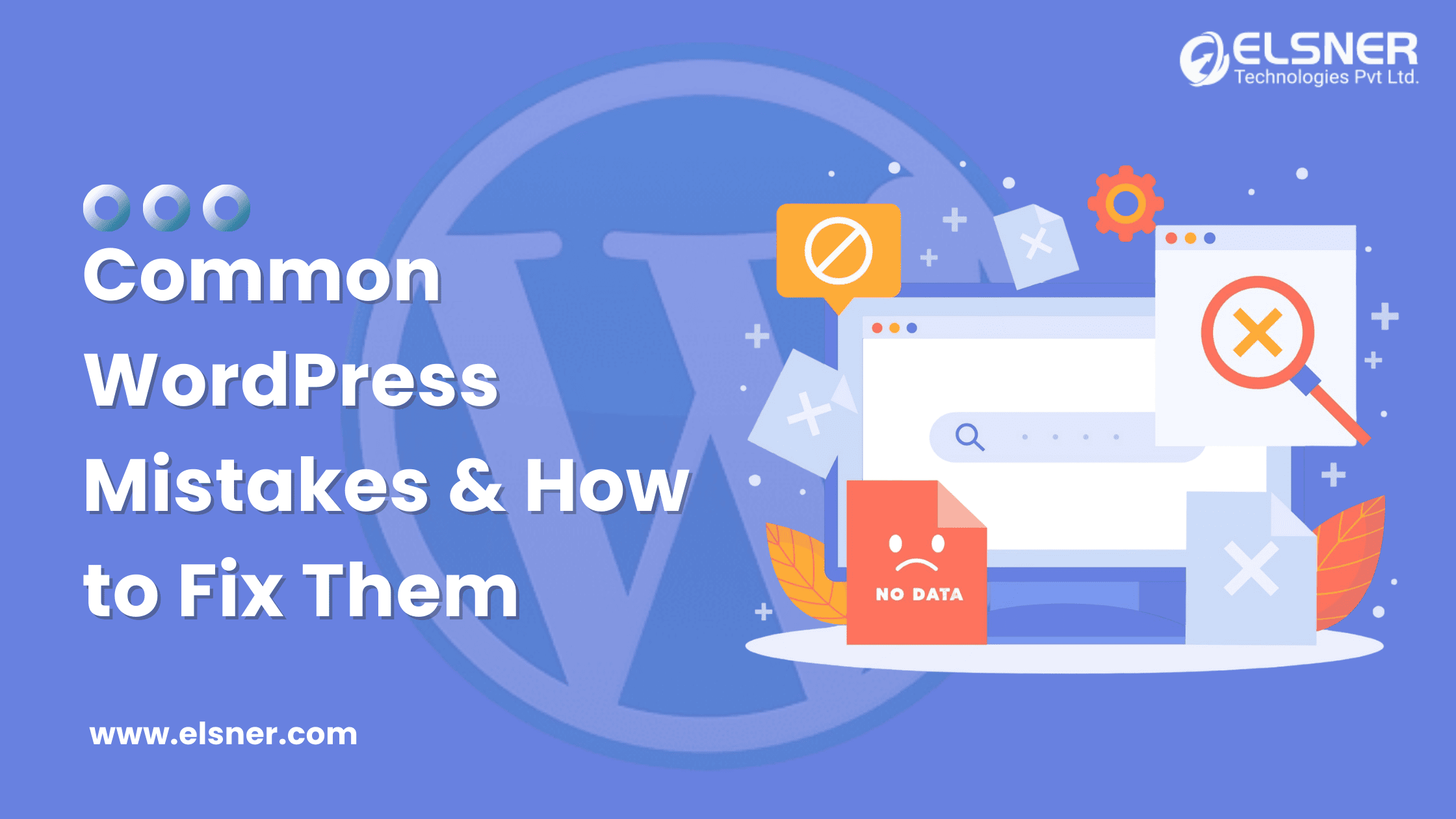- The Significance of WordPress
- What Events Triggered The Conflict Between Mullenweg And WP Engine?
- Legal Tensions
- What Has Changed With WordPress’s Trademark Policy?
- WordPress Community Concerns About Conflict?
- The Lawsuit Escalation
- What Impact Has The Conflict Had On Automattic’s Employees?
- Future Implications for the WordPress Ecosystem
- At The End: Communication And Transparency Is The Key!
The web hosting and content management sectors witnessed a tense moment recently, with a heated controversy between WordPress founder and Automattic CEO Matt Mullenweg and WP Engine, the leading WordPress hosting service for building your WordPress sites.
To some extent, this conflict has focused on key issues in trademarks, data protection, and even the very nature of open-source software in today’s tech world. With nearly 44% of websites powered by WordPress, the impact of the dispute goes far beyond just two entities. Mullenweg has voiced concerns about WP Engine’s policies, including disabling important features that ensure the protection of user data, something that he believes goes against WordPress’s promise to its community.
This affair could entirely transform WordPress’s future after the dust of this conflict settles, and it will undoubtedly be a major case study in open-source project governance.
The Significance of WordPress
WordPress is a cornerstone of the internet, powering approximately 44% of all websites as of October 2024. This open-source software allows you to host your own instances or take advantage of the managed solutions provided by some companies, such as Automattic and WP Engine. The versatility of choices, which started as a strong point for WordPress, spawned complicated dynamics between the various stakeholders of the ecosystem.
What Events Triggered The Conflict Between Mullenweg And WP Engine?
In mid-September, Mullenweg turned up the heat a notch higher by labeling WP Engine a “cancer to WordPress” in a blog post. He specifically criticized the company for allowing disabled users to access the post-revision history—in his opinion, that undermines the core promise of data protection WordPress stands for. Mullenweg underlined that disabling this functionality by default is a cost-cutting strategy that degrades user experience.
He further accused WP Engine’s investor, Silver Lake, of reaping huge benefits from the project but not contributing to it. Moreover, Mullenweg finds it misleading that the use of “WP” in WP Engine’s branding makes customers think it is part of the official WordPress ecosystem.
Legal Tensions
WP Engine responded with a cease-and-desist letter, demanding a retraction of those comments. It further noted that as a hosting company, its use of the WordPress trademark was within the doctrine of fair use. WP Engine also accused Mullenweg of making explicit threats unless we gave him a large percentage of our revenues as payment for the trademark licensing.
In response, Automattic sent its cease-and-desist letter to WP Engine, claiming that the company violated WordPress and WooCommerce trademark policies. The exchanges between the two resulted in major changes in the approach to branding and operations for both companies.
What Has Changed With WordPress’s Trademark Policy?

The WordPress Foundation modified its Trademark Policy page. It states that:
“The abbreviation “WP” is not covered by the WordPress trademarks, but please don’t use it in a way that confuses people. For example, many people think WP Engine is “WordPress Engine” and officially associated with WordPress, which it’s not. They have never once even donated to the WordPress Foundation, despite making billions of revenue on top of WordPress.”
Moreover, Mullenweg also took one drastic measure: temporarily banning WP Engine from accessing resources on WordPress.org. This, however, had its own set of ripple effects in the entire WordPress ecosystem.
As many websites depended on WP Engine for updates, they would remain vulnerable to security threats, a fact that hasn’t been taken very kindly by the community. WP Engine responded that Mullenweg’s steps interfered with the normal operation of the WordPress ecosystem, impacting not just its customers but also the plugin developers who depend on their services.
WordPress Community Concerns About Conflict?

[Source: https://www.bluehost.com/]
The community’s response was very negative. Many users and developers felt that Mullenweg’s actions threatened smaller websites and undermined the heart of what open-source development is supposed to be about. This led to a backlash against Automattic and Mullenweg for what was seen as an abuse of power by creating walls within the WordPress ecosystem.
In a rather notable instance, John O’Nolan, the founder of the open-source content management system Ghost, spoke out against the concentration of control within WordPress.

The sustainability of open-source projects under single-entity governance is a worry many in the tech world share.
Furthermore, Mullenweg introduced a new checkbox to the WordPress.org contributor login on October 9, requiring users to confirm that they have no affiliation with WP Engine.

The contributor community expressed disapproval of this action. Some contributors claimed they were banned from the Slack community since they opposed the change.
The Lawsuit Escalation
In response to mounting pressure, WP Engine has also lodged a suit against both Automattic and Mullenweg for abuse of authority. Their actions allegedly contradicted the promises to keep WordPress an open-source project. The suit alleged that the actions of its founder over recent days revealed such conflicts of interest, which could ultimately undermine the very trust upon which the WordPress community is built.
Automattic dismissed the suit as having no merit. “We look forward to proving our case in court,” they said. This public back-and-forth has not only added fuel to the existing conflict but also raised many questions about which direction the WordPress ecosystem might be heading.
What Impact Has The Conflict Had On Automattic’s Employees?
This turbulence at Automattic has already brought significant changes to the company. On October 3, 159 employees left the company, most of them from the Ecosystem/WordPress division.
In an effort to boost morale during the turmoil, Mullenweg announced plans to provide special shares to the surviving staff members in the aftermath of the departures.
Future Implications for the WordPress Ecosystem

[Source: https://www.solodev.com/]
As this goes on, both WP Engine and Automattic are going through significant moments. The results of the litigation and the public discussion that will follow over this issue might set long-lasting precedents regarding how businesses work within WordPress’s infrastructure. Because of the uncertainty, developers and hosting companies are looking for clarification on how to utilize the WordPress trademark to prevent legal repercussions.
There are also concerns about trademarking phrases such as “Managed WordPress” and “Hosted WordPress,” which could limit the business freedom of smaller companies and developers within the community. Such actions could dim the bulb of creativity and innovation and eventually discourage new entrants into the market.
At The End: Communication And Transparency Is The Key!
The ongoing conflict between Mullenweg and WP Engine has raised important questions regarding governance, trademark rights, and the spirit of open-source software. However, how this conflict is resolved will not only define what happens to these two firms in the coming years but will also significantly affect the broader WordPress community and the principles of open source development.
As events continue to unfold, it is vital for all parties to carry out constructive dialogue, prioritize transparency, and work toward a resolution that upholds the values of open-source community members.
The result of this conflict can set an example of the future way in which open-source projects are led and administered, impacting numerous developers, corporations, and even end-users on a global scale.

About Author
Harshal Shah - Founder & CEO of Elsner Technologies
Harshal is an accomplished leader with a vision for shaping the future of technology. His passion for innovation and commitment to delivering cutting-edge solutions has driven him to spearhead successful ventures. With a strong focus on growth and customer-centric strategies, Harshal continues to inspire and lead teams to achieve remarkable results.




